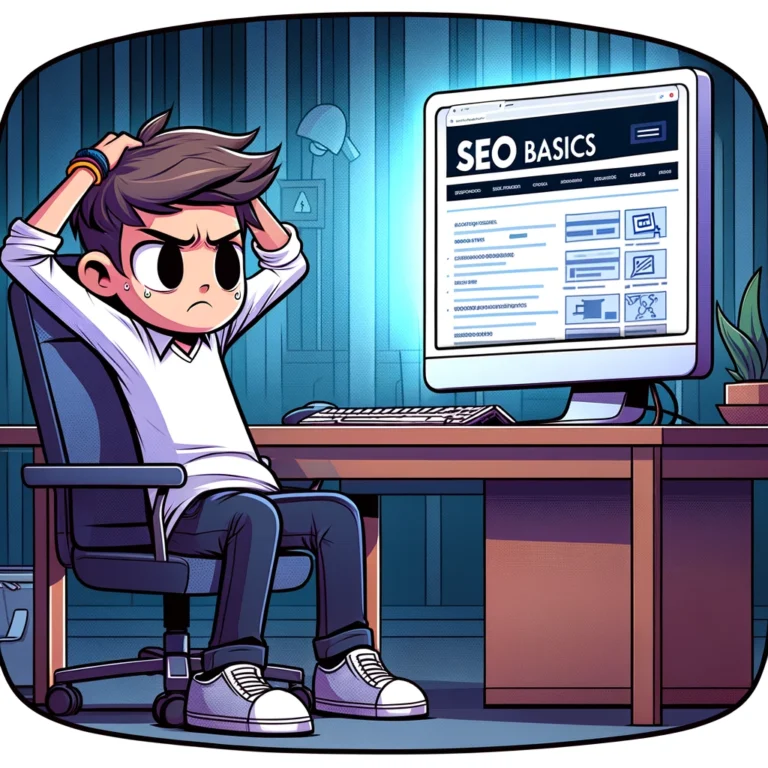In today’s digital age, understanding how search engines operate is crucial for anyone looking to enhance their online visibility. This article delves into the fundamental workings of search engines, providing insights that are essential for effective Search Engine Optimization (SEO).
Understanding Search Engines
A search engine is a software system designed to carry out web searches. It sifts through the vast expanse of the internet to find specific information that a user requests. This process involves crawling, indexing, and ranking web pages based on their relevance to search queries.
Crawling
Crawling is the first step in the search engine process. It involves search engine bots, often called spiders or crawlers, scanning the internet for publicly accessible webpages. These bots look at webpages and follow links on these pages, much like a person might when browsing content on the web. They go from link to link and bring data about those webpages back to the search engine’s servers.
This process is continuous and allows search engines to discover new content and updates to existing content. It’s important for website owners to ensure that their sites are easily crawlable by fixing broken links, making navigation simple, and regularly updating content.
Indexing
After a search engine crawls content, the next step is indexing. Indexing involves storing and organizing the content found during the crawling process. Once a page is in the index, it’s in the running to be displayed as a result to relevant queries. Search engines analyze the content of a page, cataloging images, videos, and texts to understand the context and topic of the page.
Effective indexing is crucial for SEO. If a page is not indexed, it will not show up in search results. To improve indexing, ensure that your content is clear, well-structured, and tagged appropriately with metadata, which helps classify the information.
Ranking
Ranking is the process by which search engines decide which pages are most relevant to users’ queries. This determination is made based on algorithms, which take into account various ranking factors like keyword relevance, site speed, mobile-friendliness, inbound links, and user engagement, among others.
To rank well, it is essential to focus on creating quality content that addresses the needs of your audience. Additionally, optimizing technical SEO aspects like page speed and mobile responsiveness, and acquiring reputable backlinks, are also crucial.
Keywords and SEO
Keywords are words or phrases that users enter into search engines. They are a critical component of SEO because they help determine the content of your webpages and how well they correlate with the needs of search searchers.
To optimize your website, conduct keyword research to understand the terms your audience uses. Then, incorporate these keywords naturally into high-quality, relevant content. Remember, keyword stuffing, or overusing keywords, can lead to penalties from search engines, as it degrades the user experience.
On-Page SEO
On-page SEO refers to the optimization of elements on your website that you can control directly, such as content, navigation, and page structure. This includes using proper tags for titles, meta descriptions, and headings, optimizing images, and ensuring your content is accessible.
Off-Page SEO
Off-page SEO involves external factors that influence your site’s ranking but are not directly controlled by you. This includes backlinks from other websites, social media marketing, and other marketing activities outside your website. High-quality backlinks, particularly from well-regarded sites, can significantly boost your SEO by showing search engines that your site is valuable and authoritative.
Technical SEO
Technical SEO involves the optimization of the infrastructure of your website. This includes the site’s code, structured data, and other factors that affect how search engines crawl and index your site. Improving these can help search engines understand your site better and improve its performance in search results.
User Experience
User experience (UX) has become an increasingly important SEO factor. Search engines aim to provide users with the most valuable and best experience, so sites that provide an excellent user experience tend to rank better. This includes having a fast load time, easy navigation, and mobile-friendliness.
The Importance of SEO Monitoring
SEO is not a set-it-and-forget-it process. It requires ongoing monitoring and adapting to the ever-changing algorithms of search engines. Regularly checking your website’s performance and implementing necessary adjustments will help you maintain and improve your search engine rankings.
Understanding how search engines work is the foundation for effective SEO. By focusing on the aspects of crawling, indexing, ranking, and optimizing for various SEO factors, you can enhance your site’s visibility and performance. Remember, at the core of all SEO strategies is the aim to provide valuable and relevant content to your users—this will always be paramount. Stay updated, be proactive, and continually adapt to the shifts in search engine algorithms to achieve and maintain strong search engine rankings.

SEO Tools and Resources
To effectively manage your SEO, it’s beneficial to use various tools and resources that can provide insights into your website’s performance and help you make informed decisions. Here are some key tools that SEO professionals commonly use:
- Google Analytics: This tool is essential for understanding your website traffic and user behavior. It helps you track which pages are performing well, where your traffic is coming from, and how users are interacting with your site.
- Google Search Console: This tool allows you to monitor and maintain your site’s presence in Google Search results. It helps you understand Google’s indexing of your site, optimize visibility, and check for crawling errors, making it invaluable for website health checks.
- Keyword Research Tools: Tools like SEMrush, Ahrefs, and Moz offer powerful keyword research capabilities that help you identify keywords and phrases relevant to your content. These tools also provide insights into keyword rankings, search volume, competition, and trends.
- SEO Auditing Tools: These tools, including Screaming Frog SEO Spider and Sitebulb, can crawl your website similar to how search engine bots do. They provide a detailed analysis of your website’s SEO, highlighting issues that might be impacting your search engine rankings.
- Backlink Analysis Tools: Understanding your link profile and the quality of your backlinks is crucial. Tools like Ahrefs and Majestic provide comprehensive backlink analysis, which can help you discover new linking opportunities and manage your link profile.
Content Optimization
Content is at the heart of SEO. To optimize your content for search engines, it’s important to create content that not only incorporates keywords naturally but is also engaging and useful to your audience. Here are some tips for optimizing your content:
- Quality over Quantity: Always prioritize the quality of your content. Well-researched, well-written content that adds value to your audience will always perform better than quantity-driven, keyword-stuffed content.
- Use Headers Effectively: Proper use of headers (H1, H2, H3) helps both search engines and users understand the structure and content of your pages.
- Optimize for Featured Snippets: Structuring your content to answer questions directly can help it appear as a featured snippet at the top of Google search results, significantly increasing visibility.
- Update Regularly: Keeping your content fresh is important. Regular updates and new information can boost the relevancy of your content and keep it competitive in search rankings.
Mobile Optimization
With the increasing use of mobile devices to access the internet, mobile optimization has become a crucial aspect of SEO. Search engines favor websites that are mobile-friendly. Here are some considerations for mobile optimization:
- Responsive Design: Ensure your website adapts seamlessly to different screen sizes and resolutions.
- Mobile Speed: Mobile users expect quick loading times. Optimize images, leverage browser caching, and minimize code to improve your mobile site speed.
- User Experience: Mobile websites should be easy to navigate with touch and should display content clearly without needing to zoom.
The Role of Social Media in SEO
While social media signals do not directly impact search rankings, they can amplify your content and increase its reach. The more your content is shared, the higher its potential to generate backlinks, which are crucial for SEO. Therefore, integrating social media strategies with your SEO efforts can indirectly boost your SEO results.
Conclusion
Navigating the world of SEO can seem daunting, but understanding the basics of how search engines work is the first step toward mastering it. By focusing on quality content, leveraging the right tools, and staying informed about the latest SEO trends and algorithms, you can significantly improve your website’s visibility and ranking in search results. Remember, SEO is a continuous process of learning and adaptation. Keep refining your strategies, and over time, you’ll see the rewards of your efforts reflected in your website’s performance.
This comprehensive guide provides a foundational understanding of the mechanisms behind search engines and offers practical advice for anyone looking to enhance their SEO skills. Whether you are a beginner or an experienced professional, these insights will help you optimize your website to meet the demands of modern search engines and achieve better online visibility.



